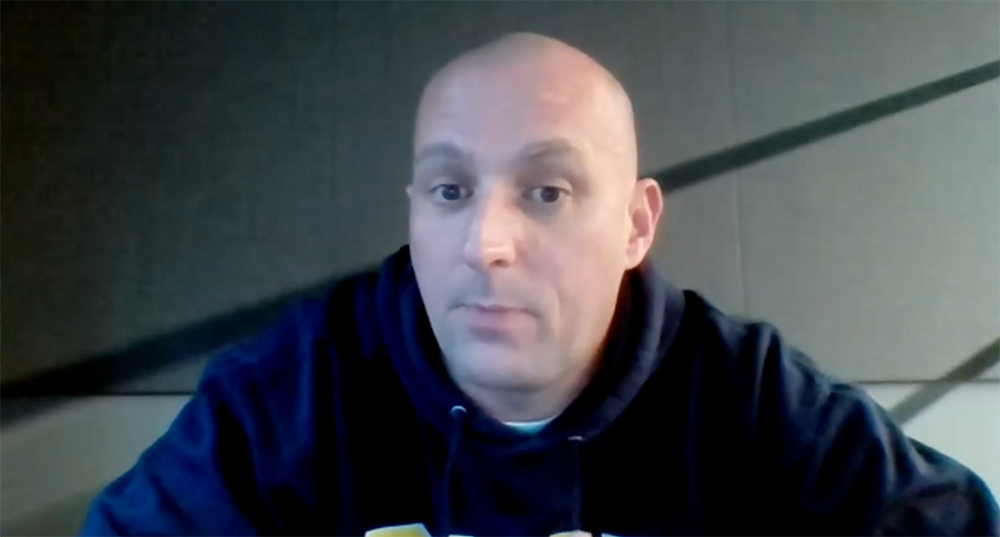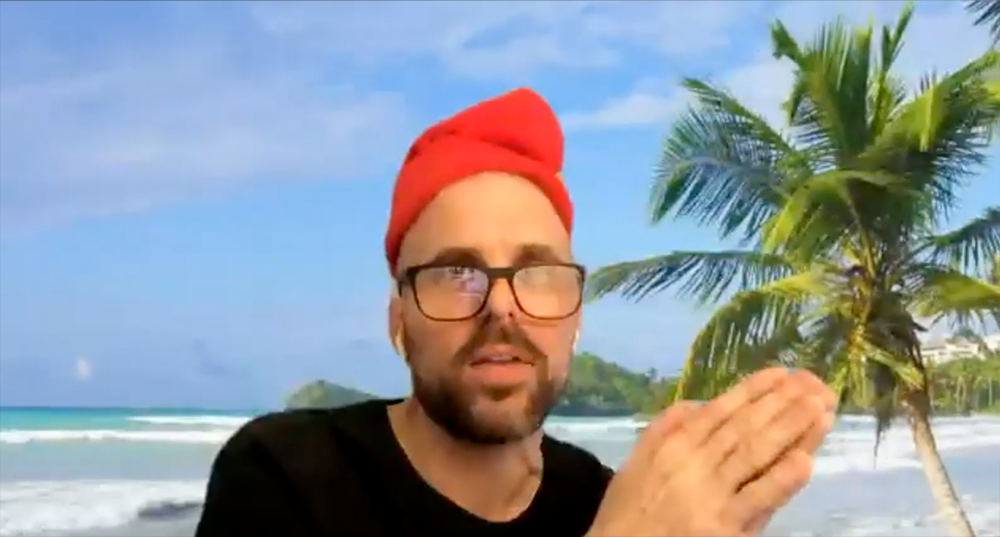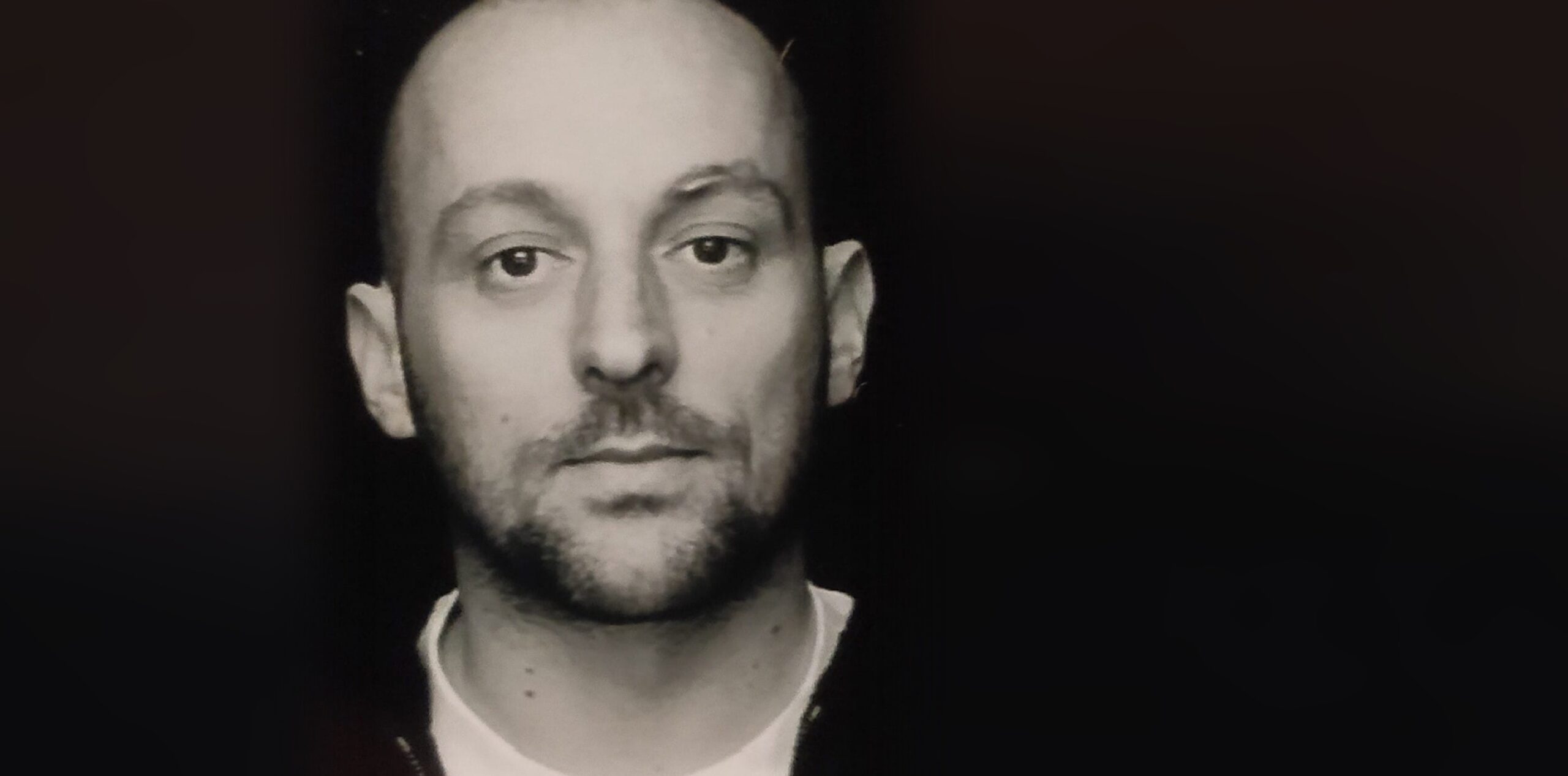From Discovery To Stage: Programming Tomorrow’s Artists
#HowWeListen Live: In Conversation with Adam Ryan took place on Tuesday, March 29th, 2022. Adam Ryan is the Head of Music at The Great Escape Festival, taking place annually in Brighton, UK.
For this event, Byta were happy to be a partner with the Association of Independent Promoters (AIP). The Association of Independent Promoters (AIP) is a new not-for-profit trade association bringing together independent promoters from across the UK with an aim to represent, empower and provide a vital support network to them. With a collective voice, AIP aims to bring about positive change within the live and wider music sector in the UK, helping members whilst also developing a vibrant, healthy, representative and sustainable independent scene.
Adam joined us from Farringdon in East London.
The following transcript has been edited for length and clarity.
In part I (below), Adam Ryan explains what exactly his role is, where he came from & the importance of London clubs. He also explains how he ended up the Head of Music at The Great Escape Festival and some of the history behind this unique event.
The following transcript has been edited for length and clarity.
Marc: Hello Adam, where are you and how’s the weather?
Adam: I’m based in Farringdon in East London. It’s pretty overcast, but to be honest, I don’t mind it. I like it when it’s like this. It means I can wear a coat, but not a big coat! You can layer; I’m more of a layers man.
Marc: You need layers in England!
Adam: Ya, well, sometimes it’s warm, sometimes cold. It changes, and it’s island weather, I guess.
Marc: Live is important, but it’s been a long time to find the right guest to talk about live concerts. COVID had no one going to gigs, so it’s scary to talk about it. So, Adam, I am thankful you’re here. Can you give us the highlight of what you do and The Great Escape?
Adam: It is only highlights. There are no boring parts! It’s all just pure highlights! So I’m the Head of Music for The Great Escape Music Festival. The Great Escape Festival is Europe’s largest new music showcase and conference; for music discovery. We have around five-hundred artists perform each year. We also have a conference that runs in tandem with The Great Escape’s live shows. So about four-thousand music delegates from around the globe. We work with many different countries and try to have around thirty countries represented in an official capacity each year. That’s it in a nutshell, really!
Marc: The Head of Music, what does that mean? There’s a Head of Music at Radio 1 at BBC, but that’s not the same as what you do, right?
Adam: No, not the same. We have a conference, and that isn’t live music. The conference is panels and discussions and business-to-business networking. The Head of Music is anything that isn’t that. It’s everything that involves live music. That could be offering and booking bands via agents or managers or working with record labels on their showcases. I Work with export offices, each country usually has an export office that pushes and promotes the best music from that country and gives them some funding, so I’ll liaison with them and with a broader team as well. So, Head of Music is anything to do with live music.
Marc: How did you get into what you are doing, and how did you end up at The Great Escape?
Adam: I was always interested in music. I used to go into my brother’s room because he was older than me, and he was really passionate about gigs and music, so I’d always go and steal his music. Then I started DJing and collecting records myself. I grew up in a really small town, and there wasn’t much going on…
Marc: Which one?
Adam: It’s Towcester (pronounced toaster).
Marc: What? Where’s that?
Adam: It’s not near jam or butter. I have heard that joke before! It’s in Northamptonshire! It’s like the farthest place away from the sea! If you were by the seaside and you’re very relaxed and easy come, easy go. Every time you take a step back, it becomes more and more aggressive and angrier, and the people start hating life – it’s like that! It’s in the middle of England.
Then I moved from there. We used to put on a lot of house parties because there weren’t any clubs or gigs. I moved to the next big town and started DJing at the Roadmender on a friend’s night and then moved to London when I was twenty. I kept on putting on my own nights, but the whole time I was working in retail because I didn’t go to College or University, I went straight into work and putting on parties.
When I moved to London, I was working for Fred Perry in Covent Garden and putting on gigs once a month and DJing at the Barfly. One day they asked me if I wanted to be a Junior Promoter. I was kind of running the door at the Barfly in Camden at that point and DJing and had my own night, so I was always active in the late-night scenes and going out a lot. Junior Promoter, I didn’t know what that was, and they told me it was what I was already doing, and I said, “Oh, you can do that as a job?”
Marc: And for people who don’t know the Barfly, it was like an (air quotes) showcase venue. Right? Was it at least six or seven nights a week and at least three bands a night?
Adam: Oh my god, we had to do thirteen to fourteen weekly shows. It was constant. It was like riding a juggernaut. You just couldn’t stop it. If a band cancelled the night before, we would have to do all sorts of stuff for the next day. We’d have to ring around to the venues in Camden and get them to pull their show and have them put it in our venue. We’d book the opening band from somebody else’s gig and get them to headline our show. We have to come up with all manner of shady things to get the venue full, but yes, it was seven nights a week. Every day you go to bed and wake up, and that is the day that needs to be booked.


Marc: My experience with the Barfly is when I did A&R at Creation, being in Camden saying to myself, “Oh, ok, I’m going to see something at 8 pm at the Barfly, then I’m going down the road for something else, then I’m coming back.” For bands, managers, or artists that have never played in London, that’s the way it starts! You do a week of gigs in London at all these venues.
So you were a Junior Promoter. What happened? Did you start booking more of those gigs?
Adam: Well, instead of doing one night a month, I was trying to bring in stuff. There’s a combination of bringing in your own shows or bringing in other people’s, like promoters or doing afterparties. If there was a bigger show at KOKO, and if they had a show, we would get in touch with the headliner of that gig and try to get them to come to our club for an afterparty and late night.
To be honest, it was about catching the new band but also maximising our budget and bar sales. It was a great place to meet everybody in the industry. It had such a good reputation, and it was one of the only, well, there were only a handful of venues you’d go to as an A&R/tastemaker, and that was one of them. I was quite fortunate really to have been hanging around.
Marc: And then how did you transition into The Great Escape?
Adam: Well, when I was a Junior Booker, The Great Escape started around that time, 2006. The company that I worked for then, I think it was ChannelFly or Mama and Comp., started The Great Escape. Jon Mack, who books Reading & Leeds now, and Martin Elbourne, who work and books parts of Glastonbury, said, “We’re a showcase event, in another part of the world, and there’s nothing like this in the UK. We need to start one.” So they started this around 2006.
I went from being a Junior Booker to Head Booker, and then I went into some weird spot where I managed and oversaw three or four calendars. Then I was vaguely a national promoter, but it’s pretty challenging to be a national promoter. You need to either be all in or out. People sign up bands so early now that you have to take a hit on selling a show in Birmingham and then making your money in London, so it’s not something you dabble in. You have to commit fully, and I never really did. So when I was offered The Great Escape job, I’d always wanted to do it, and I had been involved as a venue rep or helping out since the beginning. So here I am now, seven years later.
Marc: The national promoter stuff is interesting to mention because I don’t know how many people understand that dynamic. There’s quite a lot of politics, isn’t there? Who your booking agent is, who they work with, which promoter, and certain promoters want you to sign with them to do a whole tour around the UK, and they’ll take, just like you said, a loss on the first few tours, knowing it’s going to blow up. Is that the way it works?
Adam: Well, what happens typically is that they’ll cherry-pick. National promoters will take London, Manchester, and maybe one other city and leave the other ones to independent promoters. The agent will say to the independent promoters, “Oh, no, we’ll keep you on!” and then nine times out of ten, it’ll just revert to a national promoter because they have bigger budgets to spend on marketing and advertising, they’ll have a monthly page in a national publication. Most of the time, they’ll be able to offer festivals, but that’s why you have an agent. It’s to negate that shark-infested choppy water. There’s definitely a low layer of politics with national promotion, and it wasn’t something that excited me.
Marc: I think that’s good for everybody to understand. An agent is great for booking tours, but this is why you build a team and have people around you who know all the ins and outs of this kind of stuff.
Let’s get into the festival because there is so much to unpack. You mentioned four thousand people, five hundred artists. Did you say there were forty stages? That sounds big to me.
Adam: I think it’s about twenty-five to thirty venues. We have so many partners involved that a venue can run from noon until midnight. So we might have this matinee showcase from twelve until four because it has its own partner and could be a showcase for Swiss artists. Then, in the evening, from seven until eleven or midnight, that could be with DIY Magazine, we would tend to put a media partner in there. If you view every time slot as a different stage because it has a different booking theme, it’s about ninety stages in total. It’s a lot of conversations and a lot of things spinning around.
Marc: And so when is your festival, is it in May?
Adam: Yes, it’s in May, over three days.




